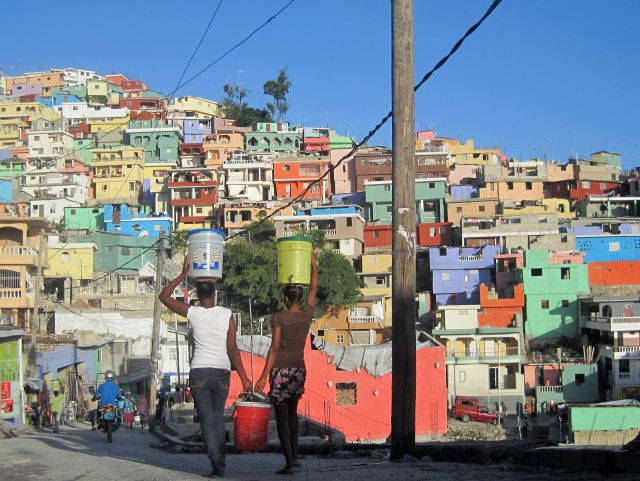Pastoral Experientialism
- Gabrielle Moore
- Feb 17, 2022
- 2 min read
The lens by which I perceive the city has been cultivated by a duality, the pastoral, and the industrial built space. It was within the pastoral, where self-provision was necessary for survival, that led me to critically ponder the systems of efficiency we often take for granted. In our formal settlements, characterized by industrialism, we are surrounded by an infrastructure that caters to our whims. Systems are installed for our maintenance, whether it be the supply of water or sustenance. Thus, I refer to my experience in the pastoral, where the absence of these systems suffuses the space, to be instrumental in my conception of the built environment.
My mother’s side of the family is from Haiti. Statistics will inform you that Haiti is the poorest country within the Western Hemisphere. However, my experience counters this narrative. Ever since I was 10 months old, I would travel back and forth from my hometown of South Orange, New Jersey to my grandparent’s abode in Port-Au Prince, Haiti. To even enter their community, you would be met by a series of security officers. I would spend months at a time in my grandparents’ home, surrounded by chickens, goats, and cats roaming about their land. At night, guard dogs would be released, to detract possible intruders and the house would be meticulously locked.

My Grandparents Home in Haiti: own picture

My Grandparents Home in Haiti: own picture
My grandparents were able to accumulate their wealth in the states to gradually fund the construction of their home. Unlike most of Haiti’s population, they had the means to take care of themselves, self-provision. For instance, when the electricity would regularly go out, my grandparents simply powered the generator. When water was unsafe to consume due to Cholera, they were able to purchase their water in bulk weekly. Therefore, I would identify my experience as one of privilege. While we were secluded, it was our weekly attendance at church and the super Marché, which allowed us to interact and observe the outer population. While my grandparents would shop, they would leave me in the car, symbolically illuminating the discrepancy between the native population and me. I would watch, from the presumed safety of the vehicle, Haitians carrying items on their head, lay out products to be sold and roam about their “informal” settlements. My grandmother would buy from locals, selecting from an assortment of organic herbs and vegetables. As I got older, I was able to shop alongside her. Through this, I observed the relationship Haitians had with their natural environment. By feeding off the land in a natural balance, a rich generational knowledge was cultivated on the island.

"Informal Haitian Settlement".Source:https://www.ipsnews.net/2013/09/haitian-government-applies-make-up-to-misery/

"Haiti's market women resist global forces". Source: https://www.pambazuka.org/economics/haiti/
Additionally, I noted the unique forms of transportation. They utilized tap-tap’s, which are painted trucks and motorcycles, as a taxi system squeezing up to 6 people. In summary, my experience was influential in my conception of the city. Through observation, I became acquainted with issues of sanitation, poor infrastructure, transportation, and agglomeration within the built space.




I appreciate your ability to separate yourself from your own experiences and contexualize how the rest of your community experiences Haiti. Observation can sometimes become clouded by our own experiences but you wonderfully use your own as an unbiased supplement to your observations.